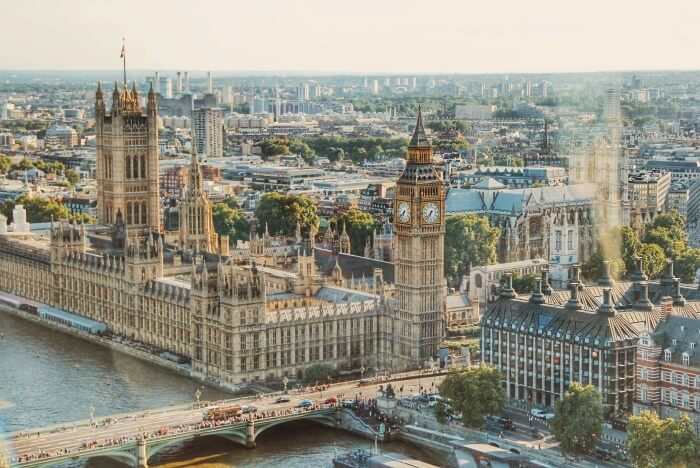Gambling
Operator share prices tumble as UK government considering gambling tax increase

Great Britain’s government is reportedly considering proposals that could see certain taxes on gambling operators double, in an effort to raise up to £3bn (€3.59bn/$3.92bn) in additional funds. One such proposal could see the remote gaming duty increased to 50%.
Today, UK remote gaming duty sits at 21% of operator profits, this is based on a 2019 increase from the previous rate of 15%. General betting duty is 15% of net stake receipts, which is comparable to the gross profits from bookmaking. Pool betting duty is 15% of pool betting receipts.
Quoting sources close to the treasury, the Guardian reports that there are several proposals on the table. These include plans to increase certain gambling tax for online gambling operators in the UK.
Sources said new measures could be included in this month’s budget. Chancellor Rachel Reeves is due to deliver the budget on 30 October – the first of the new Labour government. Labour won the general election by a landslide earlier this year and is now back in power after a 14-year absence.
In response to the report listed operator share prices have tumbled, with Entain’s down as much as 15%, while Evoke shares fell as low as 16%. Playtech shares are currently down 13%, while Rank Group is trading almost 7% down on opening.
In addition, Flutter, which is now listed on the New York Stock Exchange, felt the immediate impact of the report. On late Friday trading, its share price tumbled and closed almost 9% down. Today shares are currently down almost 8% on opening price.
Remote gaming duty could hit 50%
The proposals reportedly come from influential thinktanks and are supported by one of Labour’s top individual donors, Derek Webb, a former poker player and casino game inventor. Webb has reportedly given £1.3m to Labour since the start of 2023.
One plan from the Institute for Public Policy Research (IPPR) suggests the government could raise up to £2.9bn in 2025 by doubling taxes on “higher harm” products, including sports betting and online casino. The IPPR would not amend duties on gambling it sees as being “lower harm”, such as the National Lottery.
However, the current 15% general betting duty on land-based bookmaker profits could be doubled. Remote gaming duty could also jump to 50% under the same plan, which could be catastrophic for some in the sector.
“We suggest this is the best application of the ‘polluter pays’ principle and it will create incentives for companies to focus on lower-harm products,” the IPPR said.
A second plan comes from the Social Market Foundation (SMF). Still in the works, this proposal would also see tax rises but at a more moderate rate than the IPPR’s plan.
Part-funded by Webb, the SMF is proposing raising remote gaming duty to 42%. This, it said, could raise approximately £900m in additional funds.
How has the market reacted?
The Guardian published its article on the talks late on Friday (11 October) afternoon. The piece also featured comments from the Betting and Gaming Council (BGC), which hit out at the plans.
“Comparable markets abroad which have imposed draconian regulations and disproportionate tax regimes have seen a spike in illegal black-market gambling,” a BGC spokesperson said.
Regulus Partners has warned profits would be largely or entirely wiped out if the RGD was increased to 50%.
“UK-related operating margins would need to be higher than 20% to stop the tax increase causing operating losses. Inevitably, therefore, marketing, content and product fee and operating costs would have to be cut so as not to lose money, including but not limited to horseracing even if horseracing were to be explicitly carved out of the tax increase – all costs would need to be seriously considered,” it said in a blog post published this morning.
Goodbody analyst David Brohan said in a note that he did not expect the increase to be as much as reports as suggesting.
Brohan estimates a remote gaming duty increase of between 3% and 5% is more likely.
“While it is clear the focus will now be on tax increases for the sector in the upcoming budget, we expect any increases to be moderate in line with the economic importance of the industry.”
Should the plans proceed, Britain would become the latest European market to implement higher gambling taxes.
Last month, the Netherlands parliament announced a staggered rise in tax. The rate will initially increase from 30.5% to 34.2% of GGR on 1 January next year. This will then rise again to 37.8% on 1 January 2026.
The move has been met with much criticism, with various stakeholders expressing the hike could push operators out of the market, or increase costs for consumers could see them turn to the black market.
One damning report warned the tax hike would cause significant losses for online operators and likely force Holland Casino to close branches or fold its online offering.
Alan Littler of Dutch gambling law firm Kalff Katz & Franssen told iGB the Dutch government “appears to be deaf to the industry’s concerns”.








/cdn.vox-cdn.com/uploads/chorus_asset/file/24100829/226345_Nest_Doorbell_wired_JTuphy_0006.jpg)
